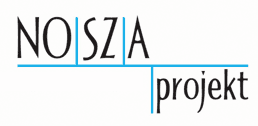
The conference invitation for 18 November of the NOSZA project addressed the organizations which are interested in European advocacy. We believe that the informations distributed on ESC and the outcome of this event is also interesting not only for the 150 registered participants, but many others.
One of the consequences of us being a member of the European Union is that there will be full Hungarian members working in the bodies of the Union. There are already Hungarian observers in most of the committees, but not in the Economic and Social Committee (ESC). Maybe, this is one of the reasons that we have heard relatively little about the role of ESC and that there will be CSO experts among the delegates. The conference, having 150 registered participants from CSOs, on 18 November aimed at improving this situation.
The role of ESC within the EU is not very imperative, some even question its effectiveness. The committee will have more than three hundred members - twelve of them from Hungary -, mainly from the organizations of employers and employees. Its role is mainly consultative in the decision-making process of the EU. The latest brochure is titled ?The ESC - a bridge between the EU and organized civil society” - referring to the role it wants to fulfill in social dialogue.
The members that come from NGO associations are a relative minority in this committee. The conference of the Nonprofit Sector Analysis wanted to help these, as the nonprofit organizations could propose delegates by answering the call of the Ministry of Labour until 30 November in the area of equal rights, human rights, development policy, consumer rights, employment, environment, social and health, disabled people, employment, public education and youth. The government committee will select those three-four people that will be members of Group III. (The call and other information can be obtained from the www.fmm.gov.hu website since October.)
The conference participants expect that the ministries will involve them in the process of selecting the members.
The conference organizers were clear about that they do not want to interfere in choosing the delegates, but rather to help organizations to draw a realistic picture on the role of the future members, their limited possibilities in advocacy. As the members of ESC will not get a salary, but travel reimbursement and daily allowance, the national organization that delegates them has to provide the background here in Hungary. Conference participants discussed the job of the future members, a rather specific ?job description” and their expectations in workshops.
It became obvious that everybody expects that the members be a kind of ?messenger”, helping them to get access to information, asking for expert opinion of others and lobbying at other ESC members and EU institutions.
The intermediary role of this person can thus be fulfilled in case it can help the flow of information, effective communication and having experience in advocacy work - nevertheless not being linked to any political parties, said the participants. These are high expectations, which can be useful for both the third sector and the government. In connection to this issue, several working groups reached the same conclusion: the advocating capacity of the sector depends on the effectiveness of local and expert civil cooperation.
Naturally, the financial issues were also raised. As the future members will get their salaries not from the ESC but from their parent organization, or can be pensioners, some suggested that the Hungarian government - knowing the financial situation of the sector - should support the organizations in financing the delegates background.
On the plenary session, summarizing the conference, a proposal was raised that it might be helpful in the European advocacy to establish a three-party forum, using the model of ESC with employers, employees and the third group. The comments of the participants all supported this idea. As a follow-up the NOSZA program will initiate a joint discussion with all three groups and the government to further develop this concept.
It will not be easy to fulfill the expectations of the conference participants, but those, who were present today, next time will expect to hear the Hungarian members of ESC to report on what they would have done and also tell us what they would not have achieved.
We will be there and will let you know.
